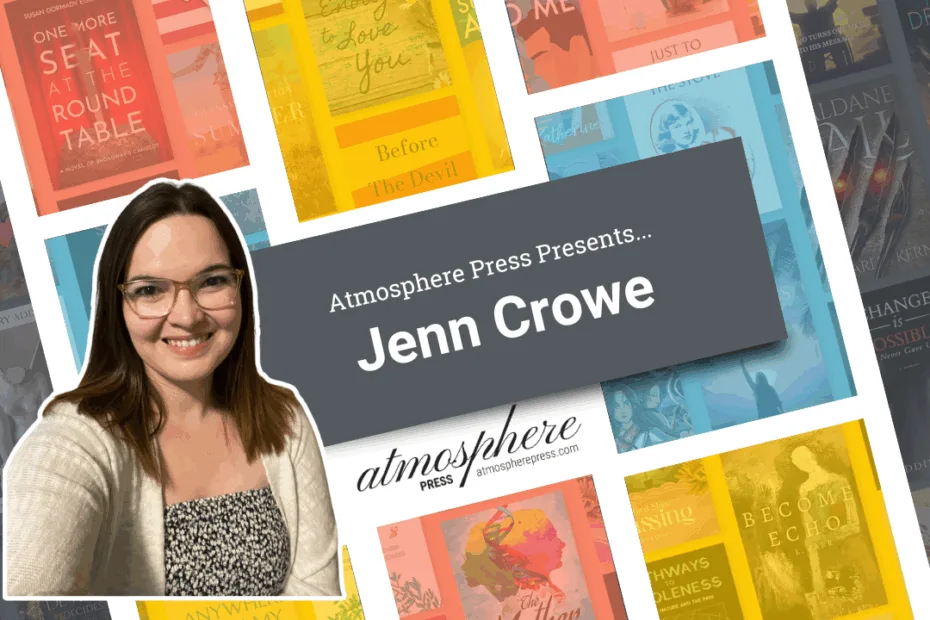An Interview with Jenn Crowe

Jenn Crowe is a thriller author who loves crafting fast-paced, suspenseful stories with shocking plot twists. She enjoys writing in the domestic and psychological subgenres. When she’s not writing, brainstorming, or reading about fictional worlds, Jenn works as a marketing and communications manager. She lives in Alberta, Canada, with her husband, two children, two dogs, and a temperamental orange cat.
Who/what made you want to write? Was there a particular person, or particular writers/works/art forms that influenced you?
For my entire life, I have always loved reading – especially thrillers. I devoured books written by incredible authors like Ruth Ware, Shari Lapena, and Lisa Jewell. I enjoyed them so much that I wanted to see if I was capable of weaving the kind of complex plot they do in each of their novels. I’ve been passionate about writing since I was a child, and I decided it was time to challenge myself to do more with it.
What inspired you to start writing this book?
The hook came to me first. It sounds silly and cliché, but the concept really did just strike me one day out of the blue. I’m constantly thinking up ideas and jotting them in my notes app. This one stuck with me, and I believed it could really be something. From there, I started to build the outline of the story, develop the characters, and establish the plot. As it grew, it took on a life of its own. The twists even surprised me!
What books did you read (for research or comfort) throughout your writing process?
So many! Reading is such a huge part of my life, so I constantly have at least one book on the go. To help with craft during the writing process, I read Save the Cat! and The Emotion Thesaurus. For research purposes and to keep myself inspired, I read countless thrillers. A few that come to mind are Count My Lies by Sophie Stava, Listen for the Lie by Amy Tintera, She’s Not Sorry by Mary Kubica, and Behind Closed Doors by BA Paris.
What advice would you give your past self at the start of your writing journey?
Keep writing – even when the words aren’t flowing or everything that makes it onto the page feels terrible. Drafts are messy, and that’s okay. You can always go back and fix a messy draft, but you can’t fix a blank page. Also, take every opportunity to continue learning. Writing is a talent, but it’s also a skill. The more you read and focus on honing your craft, the better your writing will become. Trying to achieve success in this industry will be a marathon, not a sprint.
What’s one thing you hope sticks with readers after they finish your book?
Above all else, I want to provide an escape for readers, the way mindblowing thrillers have always done for me, and hope they will remember my story as being really fun and exhilarating to read. I hope it leaves them feeling blindsided (in a good way) by the twists. If someone describes my book as ‘un-put-down-able,’ I will feel like I accomplished what I wanted my book to be.
Are you a writer, too? Submit your manuscript to Atmosphere Press.

Atmosphere Press is a selective hybrid publisher founded in 2015 on the principles of Honesty, Transparency, Professionalism, Kindness, and Making Your Book Awesome. Our books have won dozens of awards and sold tens of thousands of copies. If you’re interested in learning more, or seeking publication for your own work, please explore the links below.
